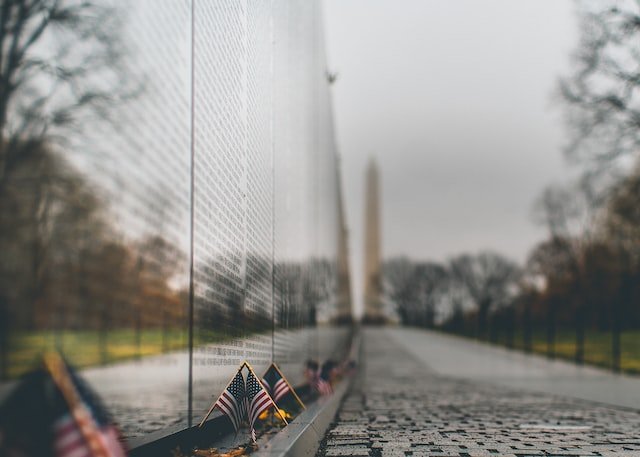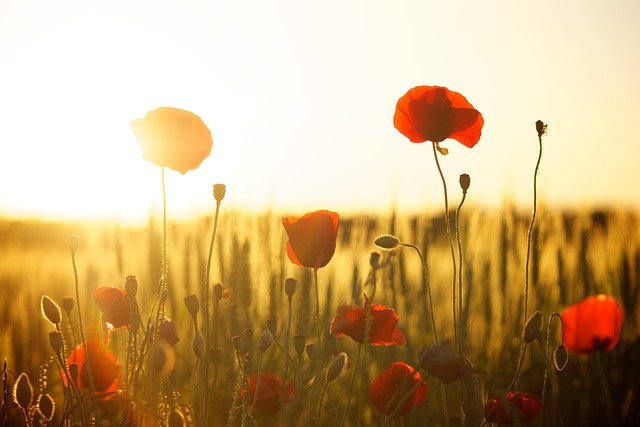Military rituals carried out at funerals have meaning and a long history. They include playing ‘taps’, firing rifles, and draping the casket with the flag.
Read MoreSimple Cremation: Debunking Common Myths
Simple cremation is the most affordable funeral option. One myth is that this option is only for people who can’t afford a traditional funeral or cremation.
Read MoreHow to Avoid Emotional Overspending For Funeral
People sometimes overspend on the funeral of their loved one for a variety of reasons. Acknowledging your emotions and budgeting can help you spend wisely.
Read MoreA Step-By-Step Guide To Planning A Direct Cremation
Direct cremation is an affordable and easier-to-arrange cremation option. You need to know the costs involved and how to pick the right funeral home and more.
Read MoreTalking To Your Parents About Pre-Planning
Talking to a parent about planning for their death is tough, but it can save you a lot of time and money. Here is how to talk to your parents about pre-planning.
Read MoreAre Traditional Funerals Better Than Life Celebrations
Traditional funerals are better than life celebrations depending on an individual’s circumstances. Remember both types of funerals have different pros and cons.
Read MoreHow To Find The Right Cremation Services
You need to carefully read the details of the cremation packages offered by a funeral home before making a decision. You should also consider the following.
Read MoreMemorial Service Alternatives After Direct Cremation
There are many alternatives to holding a memorial service for a loved one. Imagine new ways to celebrate a loved one such as having a virtual dinner and so on.
Read MoreTop Products You May Need For A Burial
The items you need for a funeral is determined by the type of funeral you choose. You need a casket, burial vault, and headstone for most traditional funerals.
Read MoreTraditional Jewish Funerals
The Jewish community is diverse but their funeral traditions have more similarities than differences. Members of this community may request something different from a funeral home in Bronx, NY depending on whether they are Sephardic or Ashkenazi Jews. The funerals have many differences from Christian ones too. Here are some of the things to expect in a Jewish funeral.
Preparation Of The Body Is Done By Other Jewish People
The handling of a body is a big deal in Jewish tradition because they consider the body to be a holy vessel. Only people belonging to the Jewish community are allowed to prepare the body for burial. They prepare the body immediately after death by washing it with cold water while reading sections from the Hebrew Bible. The body is washed for a second time and then wrapped in simple linen or muslin garments. But you are allowed to dress the body in a modest dress or suit.
Guarding Of The Body
People volunteer to “guard” the body from the time of death until the funeral. “Guarding” refers to sitting with the deceased while reading psalms until the burial. This tradition is referred to as “Shmira” and the person guarding the body is called a “shomer”. Keep in mind that a Jewish funeral happens within 24 hours after the death of a loved one. That means that each volunteer probably “guards” the body for less than a couple of hours depending on how many people volunteer. Only people from the Jewish community are allowed to guard the body.
Jewish Funeral Service Characteristics
Unlike other religious funeral services, a Jewish funeral service can take place at a funeral home, synagogue, or even at the graveside. The casket remains closed during the funeral service and flowers and music are not allowed. During the service, there are readings from the scriptures, which are explained briefly by a rabbi either in English or Hebrew. Mourners are ushered into the service after everyone is seated and can only greet attendees after the burial. After the family of the deceased is seated in the front row, the person officiating the service chants or reads Biblical passages and then says a silent prayer.
The Rabbi Or Cantor Delivers The Eulogy
A eulogy in Jewish tradition is meant to honor the life of the deceased and comfort the family. The rabbi meets the family and other loved ones to talk about the life of the deceased. They often ask the family to share any interesting stories about the deceased. The rabbi or cantor uses this information to come up with a eulogy that the family of the deceased will appreciate. Family members or close friends may be allowed to speak during the service, but only if their remarks are brief and written down. After the service, the deceased is buried in a simple wooden casket.
You can always ask a funeral home whether they provide Jewish funeral services when you are looking for funeral and cremation services in Bronx, NY. Our staff has years of experience and will answer any questions you may have.
Hispanic Traditional Funerals And Cremations
People in the Hispanic community mostly want Catholic funerals but with additional rituals or customs that are specific to a particular Hispanic community.
Read MoreTop Facts About Direct Cremations
Direct cremations are an affordable option where the deceased is cremated without a visitation or wake. There are no complex arrangements that have to be made.
Read MoreWhat To Expect In Traditional Catholic Burials
Catholic funerals are traditional funerals because there is a viewing, memorial service, funeral mass, and burial. Their rituals differ from other religions.
Read MoreHow To Memorialize A Loved One After Direct Cremation
A direct cremation is an affordable alternative to a traditional funeral. There is no viewing before the cremation but you can memorialize after the cremation.
Read MoreMost Popular Flowers For Funerals
Flowers can represent emotions you feel for a loved one that has died. You can use hydrangeas, roses, chrysanthemums, and lilies to decorate a funeral venue.
Read MoreTop Tips For Choosing Funeral Wreaths
There are many funeral wreath designs out there so you need to know what to look for to pick the right one. The flowers in the wreath have different meanings.
Read MoreAre Cremation Urns Too Expensive?
The price of an urn is determined not just by its design but also the material used, its manufacturer, size, country of origin, theme, and other qualities.
Read MoreHow To Choose A Funeral Director
After the death of a loved one, you will need to find a funeral home in Bronx, NY with an experienced funeral director that can help you take the next necessary steps. Death happens all around you all the time but when you lose a loved one, the pain can be so intense that you may have trouble planning the funeral. At this vulnerable moment in your life, you need a funeral director that is interested in helping you bid farewell to your loved one in a fitting.
Key Takeaways
A funeral director plans the service while taking into account your wishes. He/she takes your loved one to the funeral home and prepares the body for service. Some of the main criteria in choosing a funeral director is, first, their years in service. A professional funeral director should have at least a decade of experience. Second, experienced funeral directors often have a network that includes counselors, religious leaders, support groups, and other resources you may need after a funeral. Lastly, check for online reviews that mention the funeral director or the funeral staff. It can help you in making decision and give you peace of mind once you have left your loved one in their hands.
What A Funeral Director Does
Generally, a funeral director’s main duty is to plan a funeral without straying too far away from your wishes. All you need to do is to let the funeral director handle every detail of the funeral or cremation so that you can have breathing space. The funeral director takes your loved one to the funeral home and prepares the body for a funeral or a cremation. He or she also handles all the logistics of the funeral and the funeral service. To know whether you have found the right funeral home, ask the funeral director these four questions.
Ask Them To Tell You About Their Years Of Experience
A professional funeral director should have at least a decade of experience. Experienced funeral directors are more likely to view their work as a service or ministry that they provide to their community. Their approach is to answer your questions, serve your family, and lend a hand whenever you need help. They comfort and guide you before any discussions about business begin.
Look For Recent Customer Reviews On Their Website
Before you look at the reviews online, speak to family and friends and get their input about the funeral home you intend to use. After that you can go to the funeral home’s website and look specifically at the reviews that mention the funeral director or the staff. That will not only make it easier to make a decision but will also give you peace of mind once you have left your loved one in their hands.
Inquire If They Offer Any Services After The Funeral
Experienced funeral directors often have a network that includes counselors, religious leaders, support groups, and other resources you may need after a funeral. It is normal to feel overwhelmed with emotions after you bid farewell to your loved one. You need the help of a support group or a counselor to help you cope if you are in this situation.
Find Out How Much Everything Will Cost
Price is determined by whether you want a burial or cremation. There are more than three options under the cremation services provided by a funeral home and they vary in cost. A burial means you have to factor in the cost of embalming, staging, funeral service, and land where the burial will take place.
Our funeral home offers a variety of cremation services in Bronx, NY. Our staff is always happy to answer any question, and you can talk to the funeral director about any concerns you have.
What To Do With Your Loved Ones Keepsakes After Cremation
There are many creative things you can do to your loved one’s keepsakes to honor or commemorate them. For example, turning them into art to honor your loved one.
Read MoreWhy Do You Need A Funeral Director For Cremation Services?
Funeral directors don’t just prepare your departed loved one for burial or cremation but also offer solutions to problems related to your loved ones passing.
Read More





















